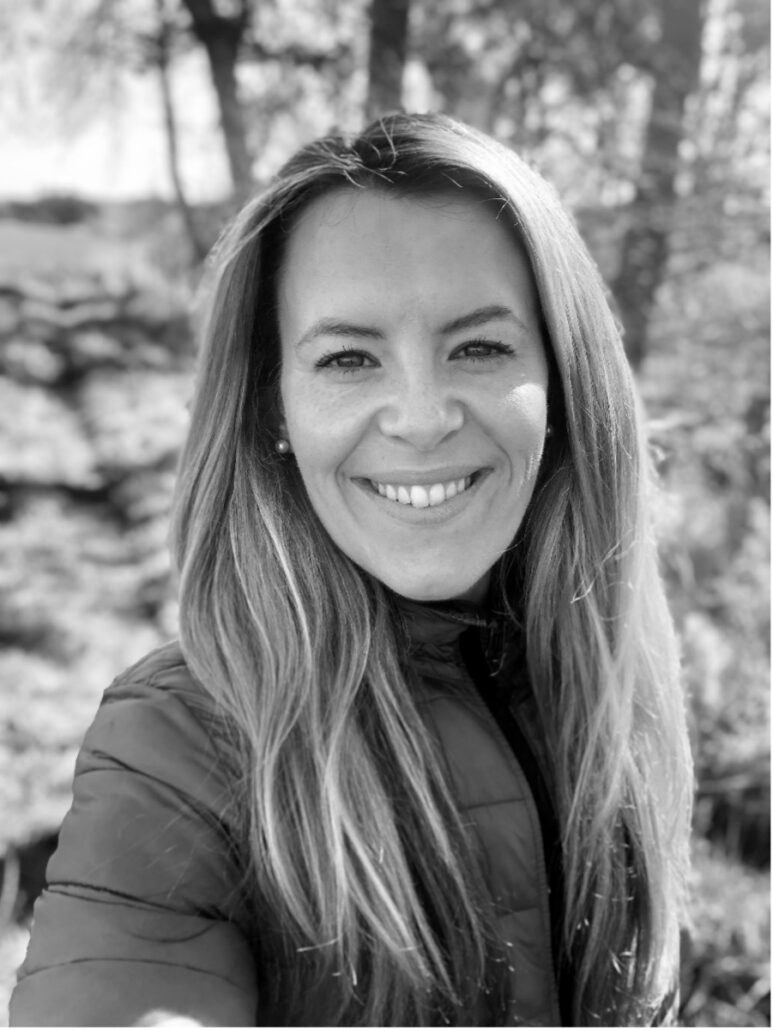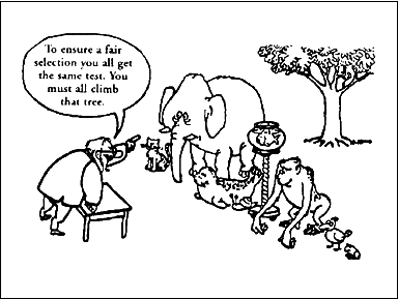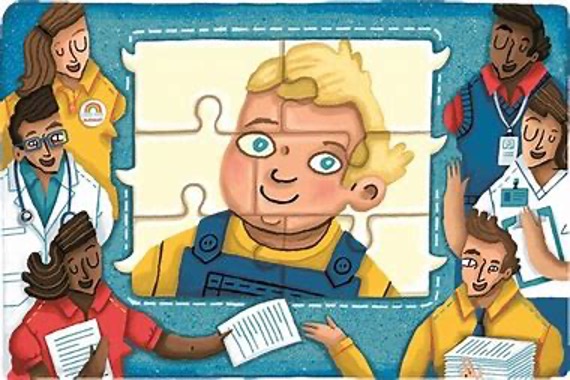In this blog post we give a very warm welcome to Jenny Gray, the first Educational Psychologist to work with The St Andrews Practice.
Is it exciting for us, not only because Jenny is such a warm and engaging person and a highly skilled clinician, but because she is the first clinician to work with children and adolescents since we epanded our service criteria. We are delighted to welcome Jenny and recently caught up with her to find out about what she plans to offer to children and families in her role with The St Andrews Practice.

"What a child can do in cooperation today, he can do alone tomorrow"
Lev Vygotsky
"The more healthy relationships a child has, the more likely he will be to recover from trauma and thrive. Relationships are the agents of change and the most powerful therapy is human love."
Bruce Perry
"Kids do well if they can"
Ross Greene
Tell us briefly a bit about you and your role…
I was born and was raised in Edinburgh and moved to Fife just over a year and a half ago. I absolutely love my animals, family and friends (in no particular order!) and living a country life near the beautiful town of St Andrews. I have over 7 years’ experience working as an Educational Psychologist (EP) for a local authority council in Scotland. As an EP my qualifications and training allow me to specialize in working with children and young people, but I also work with adults. EPs are often asked to become involved with a child or young person when there are concerns about their learning, wellbeing and development in the hope that through our involvement more positive outcomes may be achieved. The role has changed a lot since 1913 when the first EP was appointed in Britain. Although we are mostly known for completing educational assessments our remit is a lot wider and more varied. I am particularly interested in working therapeutically with children as well as working with children who require support with their learning and development. Much of my training was completed on placement nurseries, primary and secondary schools in both specialist and mainstream provisions so I have first-hand knowledge of understanding how schools work and what realistic strategies, improvements to the learning environment, advice on curriculum materials and behavior support may be incorporated into the classroom.

What support can you offer?
It can be very helpful for us all to be able to access psychological support and intervention when we need it. It can be very empowering for a child or young person to be able to speak openly with someone with knowledge and understanding of school life and learning needs who is compassionate and non-judgmental. Children and young people may wish to meet me to discuss and work on improving any aspect of their school or wider lives that they are struggling with. For children with mental health concerns I can offer psychological therapy incorporating wide range of approaches including solution focused, compassion focused therapy, positive psychology, cognitive behavioural therapy to eye movement desensitisation and reprocessing. It may be that you are concerned about a child’s learning and development and wish to have a holistic educational assessment completed. Or you may be concerned about a child or young person’s development and would like some impartial advice about what you could try next and further avenues to explore. I’m also happy to answer any informal questions via e-mail about learning needs and or suitable resources.

What does an EP assessment consist of?
Educational psychology assessments are designed in a bespoke way based on the individual needs of a child or young person. The ASPEP 2014 position paper best reflects our approach to assessment and might be useful to read (http://www.aspep.org.uk/wp-content/uploads/2014/02/Assessment-Position-Paper.pdf). The assessments I offer will consider a learner’s strength, area for development and recommended supports across emotional & social, cognitive, academic (literacy/numeracy), language/communication, physical/sensory and environmental domains. The aim of my assessment will be to provide a shared understanding of the current concerns, provide clarity and guidance about how others may best support. I think it is important to achieve this in the least intrusive way.

What relationship will you have with the child, family, school and or other professionals?
It is essential that those who know the child best work in collaboration wherever possible. Not only to help gather quality assessment information but also to help plan and implement interventions for future support. I am passionate about working alongside schools to try and plan for the best way forwards together. Working this way is likely to make more of an impact than working in isolation. Therefore, with parental permission, I can link with their child’s school/college and other professionals during an assessment as well and sharing any information after an assessment has been completed. I equally understand and respect that sometimes parents would prefer to keep the assessment information confidential until they have had more time to consider it. This is entirely their rights as parents and information will not be shared with others without parental consent.
I’m worried about how my child will feel about seeing an Educational Psychologist
Many parents feel worried about what a child might think about seeing an EP. I think it is important to be transparent with a young person as to the reasons they are meeting with me and it is important that this is done with compassion and the desire to help in a non-threatening way. No one enjoys things being ‘done to them’ without being given a choice. A child or young person’s voice is paramount to the process of my involvement as well as the relationship I develop with them. Children over 12 years of age will be asked to provide consent for my involvement but regardless of age I will always work in a way that is in the best interest of the child. If perhaps the child or young person is anxious and therefore unable to engage with me I like to be flexible and will always consider a less intrusive approach. I am happy to meet with children in their own school or at the practice. Online and remote assessments or sessions can easily be arranged.

What information will I receive as a parent?
If I am meeting your child on a sessional basis, information can be shared about what sort of areas will be covered in the sessions. However specific content shared by the child/young person will not typically be disclosed. If during these sessions I feel there are safety or child protection concerns for confidentiality will not maintained. This will be made clear to the child/young person at the start of any sessional work. If I have agreed to complete an educational assessment, parents will be provided with a written report and usually verbal feedback. I will always try to maintain, time permitting, an open-door policy when it comes to queries ahead of, during or following my involvement.

How is your profession regulated?
The Educational Psychologist title is protected and therefore regulated by the Health Care and Professional Council. The BPS Code of Ethics and Conduct guides our day-today professional conduct. The title of Chartered Psychologist is legally recognised and reflects only the highest standards of psychological knowledge and expertise.



